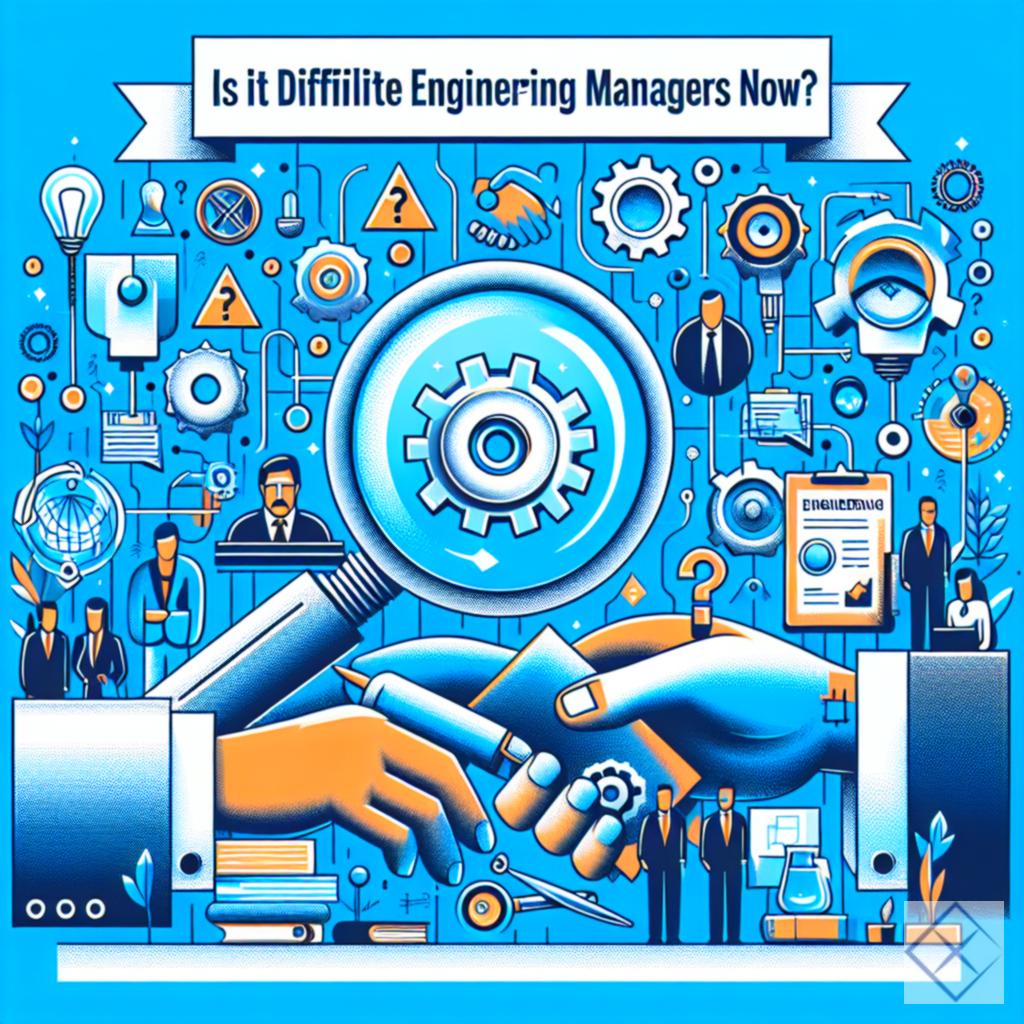Is it difficult to hire EMs now

Is It Difficult to Hire Engineering Managers Now?
In the ever-evolving landscape of technology, hiring the right engineering managers (EMs) has become an increasingly complex challenge. Recent observations reveal a worrying trend: while there may be a substantial number of available EMs, many organizations struggle to find candidates who truly fit their needs. This post explores the multifaceted challenges in hiring EMs, the contrasting experiences of candidates, and the evolving expectations of the role.
The Current Landscape
From various discussions, it’s clear that while there are many candidates available, the quality and fit of these candidates often fall short of expectations. High employee dissatisfaction among newly appointed EMs is a symptom of deeper systemic issues within organizations. Higher management may support these individuals, but it often comes at the expense of team dynamics and culture.
The Paradox of Supply and Demand
Many industry professionals argue that there is an oversupply of EMs, yet hiring remains difficult. Comments from the community reflect a consensus that the primary issue lies not in the quantity of candidates but in the lack of clarity regarding what companies want from an EM. This often leads to slow hiring processes and a mismatch between the roles defined and the skills candidates possess.
Key Challenges in Hiring Engineering Managers
1. Lack of Consensus on Role Definition
One of the primary hurdles in hiring EMs is the lack of a unified understanding of the role itself. Different organizations have varying ideas about what constitutes a successful EM. Some believe that an EM should manage a small team of engineers while others expect them to handle larger teams with complex dynamics. This inconsistency in expectations creates confusion, leading to misaligned hiring processes.
2. Varying Collaboration Expectations
The relationship between EMs, product owners, and other stakeholders is often poorly defined. Companies have different expectations regarding how EMs should collaborate with these groups. This lack of clarity can lead to frustration for both the EMs and their teams, as they struggle to navigate their responsibilities and decision-making authority.
3. Technical Skills vs. People Skills
Most hiring processes prioritize technical expertise over leadership capabilities. While a solid technical background is essential, it should not overshadow the need for strong people management skills. Many companies rely on outdated assessment methods that fail to evaluate a candidate’s ability to lead, coach, and build trust within their teams.
4. Preference for Industry-Specific Experience
Organizations often gravitate toward candidates with extensive experience in their specific industry or tech stack, which can lead to overlooking exceptional managers who might not have the “perfect” background. This narrow view can stifle diversity in thought and approach within leadership.
5. Inefficient and Rushed Hiring Processes
The urgency to fill EM roles often results in rushed hiring timelines and unprepared interviewers. Companies may hire EMs either to replace someone quickly or to alleviate overburdened leaders, causing them to focus on what they don’t want in candidates rather than what they do.
6. Transparency Issues
The lack of transparency about the realities of the EM role can hinder the hiring process. Candidates may not fully understand the challenges they will face, making it difficult to assess whether they will be a good fit for the organization.
7. Systemic Dysfunction
EMs often act as a bridge between decision-makers and execution teams. When companies struggle to retain effective managers, it usually points to deeper issues within the organization that aren’t addressed simply by improving the hiring process.
The Human Element
Hiring EMs is not just a technical challenge; it is a deeply human one. A significant portion of an EM’s success hinges on their interpersonal skills and their ability to navigate the complexities of team dynamics. The ability to shield their teams from corporate politics and advocate for their needs is often overlooked in traditional hiring practices.
The Role of Instinct and Adaptability
Many commenters highlight that the best EMs possess a blend of instinct and adaptability. They can assess team morale, navigate political landscapes, and make difficult decisions under pressure. However, these qualities are hard to quantify during interviews, making it challenging to identify truly great candidates.
Conclusion
In summary, the difficulties in hiring effective engineering managers stem from a combination of unclear role definitions, varying expectations, and a lack of focus on the essential people skills needed for success. As organizations navigate these challenges, it is crucial to redefine what they seek in EMs, ensuring that they prioritize not only technical abilities but also the interpersonal skills necessary to lead diverse and dynamic teams effectively.
By fostering a clearer understanding of the EM role, refining hiring processes, and focusing on candidates’ holistic experiences, companies can improve their chances of finding the right leaders to guide their engineering teams. As the industry continues to evolve, so too must our approach to hiring and developing engineering managers.